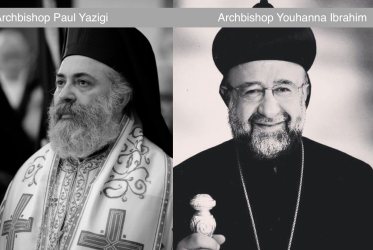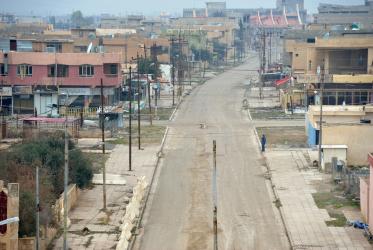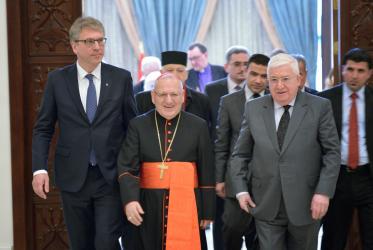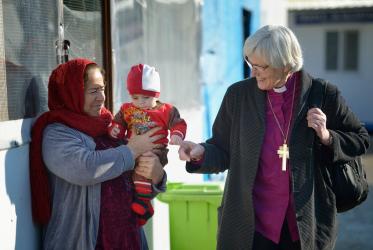Displaying 1 - 20 of 46
WCC renews call for release of archbishops of Aleppo
28 February 2022
Dr Saïd Ailabouni: God is on the side of rejected, oppressed, occupied
12 September 2019
Fr Alexi - a peacemaker in Syria
21 December 2018
How can you help refugees?
11 October 2018
WCC regrets USA withdrawal from UN relief for Palestinian refugees
03 September 2018
“Love will find a way”
23 August 2018
WCC promotes Global Day of Prayer to End Famine
06 June 2018
Creating a better future for Syrian-Armenian youth
29 March 2018
Forum strengthens ecumenical commitment to diakonia
12 October 2017
In Lebanon, refugees face hardship - but find hope
16 March 2017
“When everybody is building walls, the church can build bridges”
30 January 2017
“We can’t go back as long as we know we are not secure”
26 January 2017












